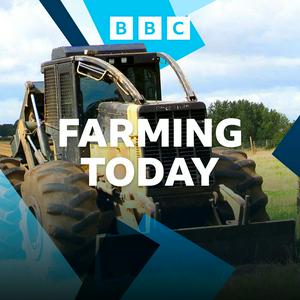After a marathon run of torrential rain, floods, and grey skies to start 2026 , the drought warnings from last Autumn seem a world away. Back in October, the Environment Agency said that at least 100% of the average rainfall would be needed every month until the end of March for England to recover fully from the 2025 drought. Steve Turner from the UK Centre for Ecology and Hydrology tells Charlotte that rivers and groundwater have returned to normal, or above normal, levels in most of the country.
We meet a grower search for an elusive and almost forgotten Derbyshire apple: Mrs Wilmot's Pippin.
Land is seen as the answer to some of the big questions faced by Society: cutting greenhouse gas emissions by generating renewable energy, building new homes to ease the housing crisis, making space for nature to halt the collapse of wildlife numbers...and farming to feed the nation. As land is a finite resource, the debate over which land should be used for what purpose is becoming increasingly charged. The Government is hoping to take some of the heat out of the discussion, and provide much needed clarity. It's already consulted on a Land Use Framework for England, and the final version is due to be published soon. Ahead of that, this week we're looking at those competing pressures on land.
Presenter: Charlotte Smith
Producer: Sarah Swadling


